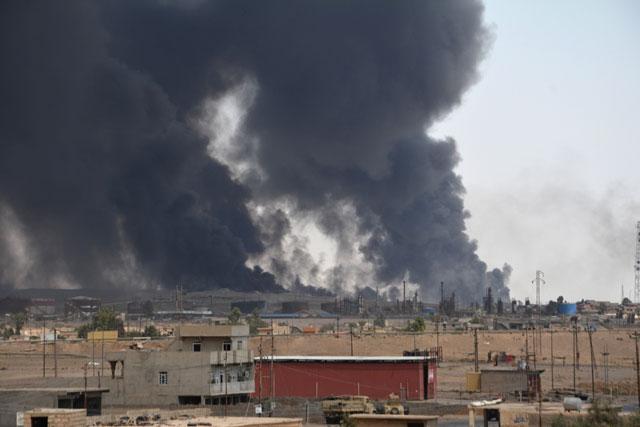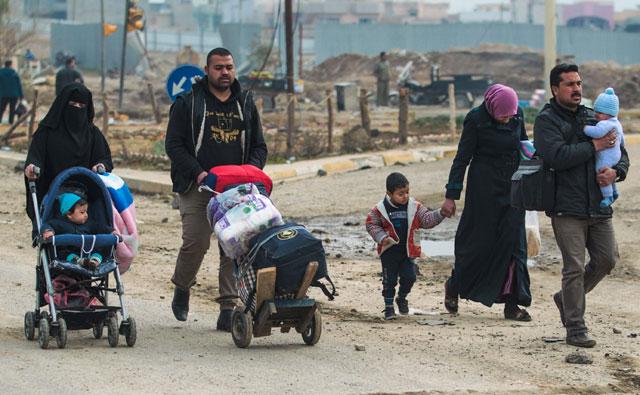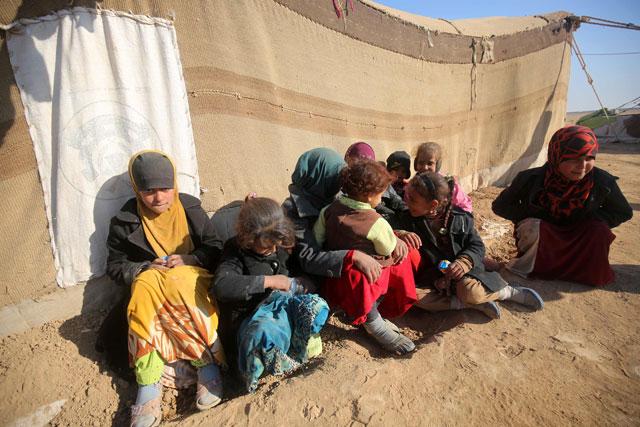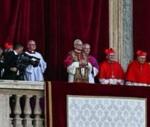You are here
Married under ‘caliphate’, Iraq couples say ‘I do’ again
By AFP - Dec 08,2016 - Last updated at Dec 08,2016
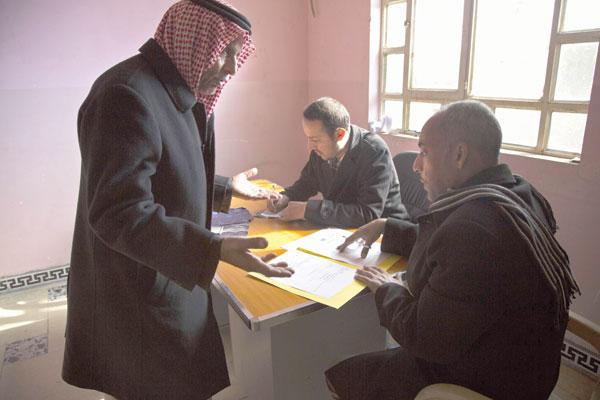
An Iraqi man waits to get official documents at the Qayyarah tribunal, in the town on the Tigris River south of the city of Mosul, on Tuesday (AFP photo)
QAYYARAH, Iraq — In Qayyarah, Iraqis are thronging a civil court to get married a second time, register births and replace the documents they were delivered during two years of extremist administration.
"Do you take Ahmad as your lawful husband?”, the judge asked Salma in the civil court that recently reopened in Qayyarah, a town on the Tigris river south of the city of Mosul.
The young lady said yes, a year after exchanging vows before a Muslim cleric in Mosul, the large northern city where Iraqi forces are battling the Daesh terror group.
The wedding certificate the couple was given then, complete with Daesh letterhead and stamps, is worthless in the eyes of Iraq's federal administration.
The extremist organisation, which controlled regions in Syria, swept through large parts of Iraq in 2014 and proclaimed a caliphate straddling both countries.
In an unprecedented move in modern jihad, the "caliphate" declared in Mosul was an experiment in statehood that saw an army of clerks and registrars run a parallel administration churning out millions of "official documents".
Iraqi forces launched an operation to retake Mosul on October 17 and, as soon as they were able to flee, Ahmad and Salma came to the court in Qayyarah to officialise their union.
"We got married a year ago but I have documents delivered by Daesh and they are not recognised," Ahmad told AFP after the ceremony.
"We wanted to come to this court to get this certificate before going to Baghdad," he explained.
His young wife stood smiling quietly next to him, a black hijab framing her heavily made-up face.
They both refused to give their full names and asked not to be photographed, out of concern for the safety of relatives who remained in Daesh-held neighbourhoods of Mosul.
Seven weeks into Iraq's largest military operation in years, anti-Daesh forces have barely retaken half of the city's eastern side and hundreds of thousands of people remained under the extremists' yoke.
Long queues
In front of the Qayyarah tribunal, which re-opened in mid-November after Iraqi forces retook the town from Daesh this summer, dozens of people were queueing up.
Some wanted to repeat their wedding vows, others to register the birth of their children.
Abdel Aziz Ibrahim, a 25-year-old from Qayyarah, was among them and explained he wanted to officialise his caliphate-era marriage with the now reinstated federal authorities.
"I came to have my marriage registered," the young man said, adding that he also hoped to "obtain a birth certificate for my son Hamza, who was born under Daesh control".
Meanwhile, at more than two years of age, little Ahmad's legal existence was about to begin.
He entered with his family, who were accompanied by two witnesses to sign the boy's birth certificate.
"Ahmed was born in August 2014, two months after Daesh entered our town," his mother Hamda Mahmud said, holding her son who wore a thick jacket and woolly hat.
"We didn't even try to get a birth certificate at the time because we knew that Daesh courts would never be recognised. So we waited," she said. "Daesh hurt us so much."
Inside the busy courtroom, the judge tried to reassert his authority after two and a half years of extremist rule marked by the law of terror and the strictest interpretation of sharia.
"We have law degrees in here," he said.
Tareq Al Juburi, one of the lawyers working in Qayyarah, told AFP outside the court: "Marriage, birth and death records just froze in courts located in areas under Daesh's control."
"Now that some of these areas are being liberated, the people are taking steps" to obtain official documents, he explained.
Not all the people lining up in the frosty morning outside the Qayyarah court were seeking to replace Daesh-issued documents.
Serhan Matar, 56, said he had come to obtain a death certificate for his son, "a policeman killed by Daesh when the extremists entered Qayyarah".
He said he also wanted to ask for compensation money for his daughter-in-law and his son's children, as well as "file a complaint against Daesh".
Related Articles
KIRKUK, Iraq — Iraqi forces on Wednesday closed in on the centre of Qayyarah, officials said, on the second day of an operation to recapture
KHAZER, Iraq — Bushra Mohammed married two years ago in her hometown of Mosul and bore a child last spring but as far as the Iraqi state is
JADAA CAMP, Iraq — Huge smiles lit the faces of the Iraqi children lining up outside the newly opened school in the Jadaa displacement camp,


